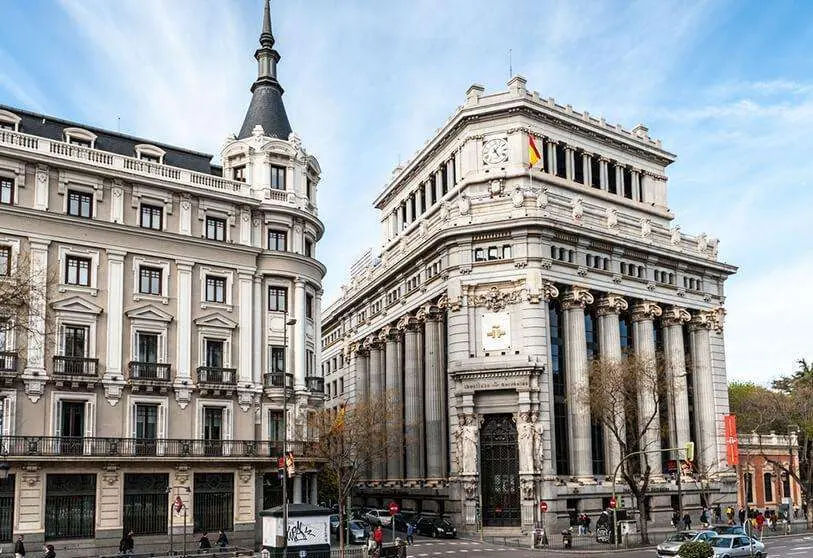"Benengeli 2022", the Cervantes Institute's International Week of Literature in Spanish, begins

From 6 to 10 June, the Cervantes Institute will hold a new edition of the festival "Benengeli 2022. Semana Internacional de las Letras en Español" in the centres of Sydney, New Delhi, Toulouse, Dakar and Chicago, with the participation of more than 40 Spanish, English and French-speaking authors. Among them, the Nicaraguan Sergio Ramírez, the Peruvian Alfredo Bryce Echenique, the Guatemalan Eduardo Halfon, the Argentinian Luisa Valenzuela, the Venezuelan Miguel Gomes, and the Spaniards Rosa Montero, Ignacio Martínez de Pisón, Soledad Puértolas, José Manuel Fajardo, Marta Barrio and Javier Moreno.
The second edition of this initiative, with 'realism' as its central theme, will disseminate an outstanding and plural sample of the best literature in Spanish throughout the world, and will be presented in a mixed format -online and face-to-face- with face-to-face round tables, interviews, video presentations and radio dialogues. The meetings, accessible to the public in Spanish, English or French, can be followed on the YouTube channels of the Cervantes Centres in Sydney, New Delhi, Toulouse, Dakar, Chicago, and through podcasts on the Instituto Cervantes Ivoox platform.
"Benengeli 2022", curated by the writer Nicolás Melini, will bring together authors from fifteen Spanish-speaking countries: Argentina, Bolivia, Chile, Colombia, Costa Rica, Cuba, Ecuador, El Salvador, Spain, Mexico, Nicaragua, Panama, Peru, Uruguay and Venezuela. It will also include meetings with storytellers from this year's host countries, Andrew Pippos (Australia), Geetanjali Shree (India), Lydie Salvayre (France), Ken Bugul (Senegal) and Frederick de Armas (Cuba-USA), with the aim of encouraging dialogue between different literary traditions in different languages.
This International Week of Letters in Spanish takes its name from the fictional character who appears in "Don Quixote", Cide Hamete Benengeli, as a supposed Arabian historian who narrates the story of a Christian knight.
In addition to the writers already mentioned, there will be voices such as those of Piedad Bonnet (Colombia), Katya Adaui (Peru), Magela Baudoin (Bolivia), Carlos Cortés Zúñiga (Costa Rica), Selva Almada (Argentina), Rodrigo Blanco Calderón (Venezuela), Evelio Rosero (Colombia), Fernanda Trías (Uruguay), Vicente Luis Mora (Spain), Mayra Santos Febres (Puerto Rico), Carlos Franz (Chile), Ronaldo Menéndez (Cuba), Pedro Crenes (Panama), Antonio José Ponte (Cuba), Santiago Gil (Spain) and Jacinta Escudos (El Salvador), who will present the elements that constitute the core of their work and the relationship of love, distance or rejection that each of them experiences in relation to the realist discourse that seems to define a large part of the universal narrative of this moment in the 21st century.
In addition, during these five days, prominent narrators such as Valeria Correa Fiz (Argentina), David Toscana (Mexico) and the Spaniards Juana Salabert, Daniel Gascón, Bárbara Mingo Costales and José Ovejero, will talk about their most recent books; titles that have just appeared in bookshops, and which constitute a living landscape of current fictional recreation in Spanish.
The Lima-based writer Fernando Iwasaki, who participated in the first edition, will offer short spoken portraits of the play with reality by authors from different traditions and territories who have adopted or maintained Spanish as their artistic language, such as Siu Kam Wen, Fabio Morabito, Ioana Gruia, Kalman Barsy and Mónika Zgustova.
The Cervantes Institute's initiative "Benengeli 2022" has the support of more than a dozen institutions and cultural bodies in Buenos Aires, Lima, La Paz, Bogotá, Caracas, San José de Costa Rica, San Juan de Puerto Rico, Panama City, Las Palmas de Gran Canaria, Santa Cruz de La Palma, Seville and Madrid.
Among them, Spanish entities such as the Universidad Loyola, the Real Academia de la Lengua, ASALE (Asociación de Academias de la Lengua Española); Latin American entities such as the Instituto Caro y Cuervo, from Colombia; Radio Deseo, from Bolivia; Radio Universidad, from Costa Rica; Unión Radio, from Venezuela; Radio Universidad, from Puerto Rico; KW Continente, from Panama; Revista Libros y Letras, from Colombia; and the Spanish media, RNE in Madrid and in the Canary Islands, and Cadena Ser in the Canary Islands.
Submitted by José Antonio Sierra, Hispanismo advisor










